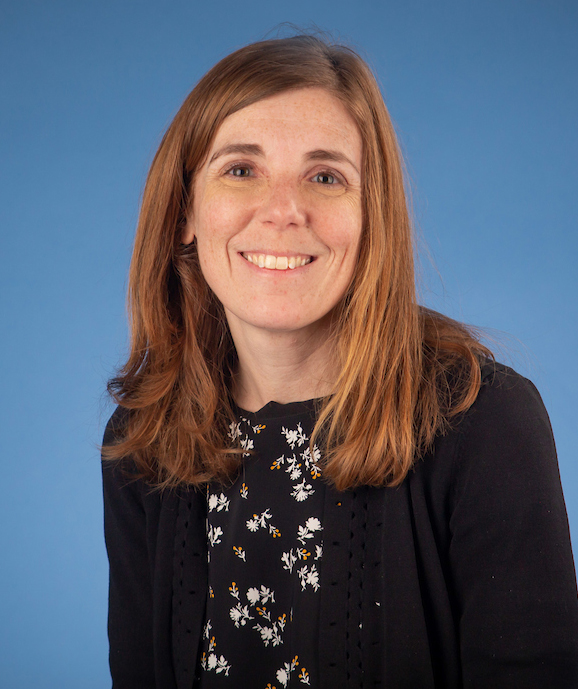AOTA member spotlight: Joy Doll, OTD, OTR/L
Joy Doll, OTD, OTR/L is the Program Director of Health Informatics and an Associate Professor at Creighton University. She spoke to Jamar Haggans, MS, OTR/L, Director of Quality at AOTA about her current position and how she became interested in quality.

Jamar Haggans: How did you become interested in quality?
Joy Doll: I became interested in quality by focusing on innovative care models. I was able to build a clinic using the team-based care approach, Interprofessional Education and Collaborative Practice (IPECP). We focused on communication, team building, conflict engagement skills training, pre-visit planning, and weekly case conferences for complex patients. This model reduced costs and improved client health.
Our IPECP team reviewed outcome and utilization data from before the model, and then during the model, and showed how the team-based care approach decreased utilization of emergency department visits, reduced hospitalizations, and improved hemoglobin A1c management in the clients we served. With that data, we were able to justify the value of our model and become the first value-based care contract clinic in the state. When I saw how data and quality measures could transform the way we delivered care and advocate using outcomes data, I became interested in quality.
I’ve always been interested in quality improvement. I previously worked at the Health Information Exchange and had an opportunity to develop one of the first Social Determinants (Drivers) of Health (SDOH) measures related to transportation. I have also served on technical expert panels evaluating measures for the Centers of Medicare and Medicaid Services.
Jamar Haggans: What is your current position?
Joy Doll: I’m the director of a new health informatics degree program that starts in August 2023. I also run my own consulting/advising firm called Hello Better Healthcare, where I work with startups and healthcare organizations. I'm currently working with a chronic care hub to help them identify processes, such as standard operating procedures, process maps, and data governance, in order to create and maintain operational soundness, which fits right into quality. As another example of my work, if an organization wants to start a new program, I help them understand how they might test for viability by performing a rapid Plan-Do-Study-Act (PDSA) cycle to show if the program would be worthwhile for cost and function.
I'm also helping startups partner with researchers to use data showing the benefit of the startups’ technologies. I’ve spent the last couple of years leading social care strategy for a health data company, working with SDOH. It’s led to me, accidentally, becoming a subject matter expert in that area.
Jamar Haggans: What parts of occupational therapy do you use the most in your quality work?
Joy Doll: Occupational therapy is solution oriented. It’s one thing to identify a problem, but occupational therapy practitioners (OTPs) are focused on identifying solutions in patient care, population health, or quality. Other players in the health care system are good at identifying the problem but are not always so scrappy or innovative in identifying a solution. I use a lot of basic occupational therapy principles like grading things for a just-right challenge, change management, understanding the human experience, seeking feedback, and helping people learn how to do something they previously did in a new way, but on a systems level.
Jamar Haggans: What advice do you have for practitioners who are interested in learning more about quality and clinical informatics?
Joy Doll: Reach out to people in the field, and don't be afraid to talk to people who are doing things you’re interested in. If you're looking for something innovative, don't be deterred when the job description says it needs a nurse or another profession. If you think you can do it, reach out to human resources to see if they would consider someone with your experience; a lot of times that might be possible and they just haven't thought about it.
Many people I know in informatics, including myself, just fell into it or were somewhat tech-savvy and volunteered. When opportunities come, don’t be afraid to get into a new space and learn something new. You will have a learning curve, but I think it's exciting to learn new things.